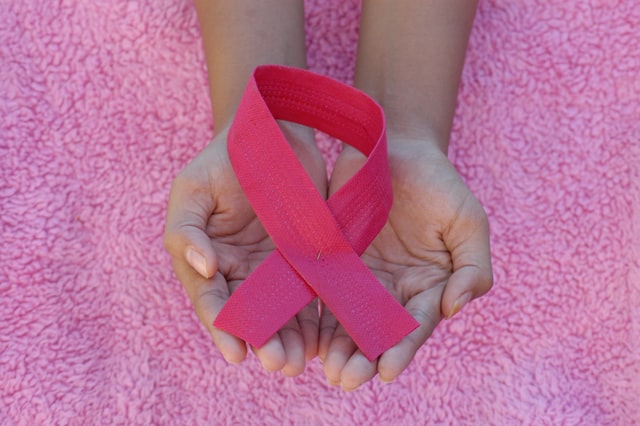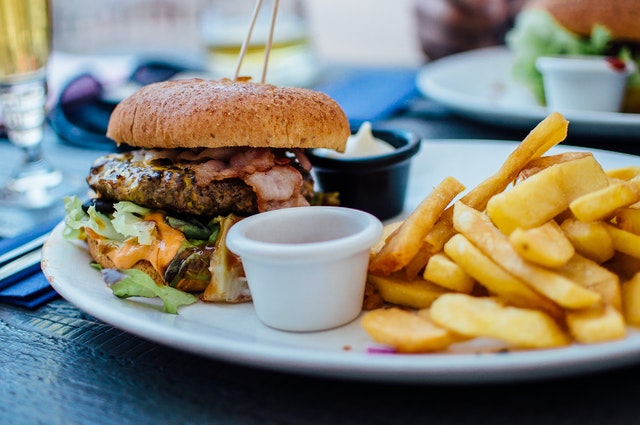Talk on vegan over non vegetarian diet | July ,2017 Singapore
Nutrition talk to young cricketers September 2017
National Golf Academy of India, January 2018, Kolkata
Sports nutrition for cricketers at Calcutta Police club, Jan 2018
Cancer : How to avoid it nutritionally
Cancer is a household word in todays world. The disease has impacted millions of people across the world and its nearly impossible to find house or family not impacted by it. Practically akin to the story of Buddha seeking a house where grief hadn’t touched them.
What is Cancer? To put it simply and succinctly, it is a state when cells starts growing dangerously rapidly and starts crowding other parts of the body. It’s the name for more than 200 diseases where cells simply begin to grow out of control.
Cancer develops mostly when the normal bodily mechanisms stop functioning. It is then that there comes uncontrollable cell growths and the old cells also do not die. These additional uncontrollable cells then in most cases go on to form a tumour or unnatural growth of a cluster of tissues. There are majorly 5 categories of cancer seen so far.
These are –
- Carcinomas – These types begin in the tissues or skins, which lines along the internal organ.
- Sarcomas – Sarcomas are that kind of cancer which develops in the cartilages, bones, fats, muscles or other connective tissues.
- Lymphomas – These types of cancer start in the immunity system and goes on to destroy the same
- Leukaemia – Leukaemia is the type of cancer which affects the blood and the bone marrow system
- Central Nervous System Cancers – These are the types of cancer which develops and subsequently spreads in the brain and the spinal cord.

Now, we may ask, what nutritional aspect can help us in reducing the chances of having cancerous growth in our bodies? In fact, anti- cancer diets are extremely important factors in reducing the risk of cancer.
According to Lillian Craggs-Dino, a registered dietitian at Cleveland Clinic Florida in Weston, “Being overweight and obesity are very closely correlated to cancer because of the inflammatory process. A strong immune system helps to naturally fight off cancer”. Thus, it is imperative to get our nutritional facts correct, because what we eat and what we don’t eat is now directly related to a number of Cancers.
Nutrition is not a cancer treatment medicine but what you eat before, after and during the treatment impact the outcome of the disease.
Dietitians & Nutritionist globally suggest dietary plans according to individualized BMI, but over all the things that can be taken in one’s own hands are –
- A colourful diet with lots of green veggies, fruits, soya, nuts etc is a must to be in a relatively safe zone.
- Lot of fruits. Colourful fruits lower the risk of stomach & lung cancer.
- Consuming vegetables such as sprouts, carrots, etc will help reducing the risk of Cancer of lung, mouth, pharynx, and larynx.
- Stomach & Oesophageal Cancers may be avoided to a certain extent by consumption of non-starchy vegetables, such as broccoli, beans or spinach, cabbage and cauliflower.
- Foods containing Vitamin C, like oranges, berries, peas etc are also extremely beneficial against Oesophageal Cancer.
- Then foods which are high in content lycopene are good in avoiding prostate cancer. These foods are tomatoes, guava, watermelon etc.
Apart from these small tips in eating healthy, when it comes to nutrients in fighting cancer, one must avoid trans-fat, cut down on sugars, processed meats or refined carbohydrates.
Carcinogens or Cancer-causing substances found in various foods, must be avoided and cooking methods needed to be relooked to prepare food in a healthy manner
For example, one must store oil in dark air-tight containers so that they do not become rancid, or one must avoid consumption oil which is preheated and used earlier.
How to stick to your new year resolutions : A Food & Wellness Guide
Every year, enthusiasts around the world take their diaries and scribble a list of to-dos with the hope of making radical changes happen. Unfortunately, most resolutions fade before the new year decorations are down. We worked up some failsafe ways to help to stick with it this year:
Set realistic targets: When making a resolution, try not to override practicality with your ambition. You know yourself the best. Set targets that you are most likely to at least try and achieve. For example, trying to be a size 2 in one year when you’ve been a size 10 all your life is a far-flung idea. However, a target of losing 20 kilos in a year, especially if you are admittedly a big foodie, is realistic enough.
Make your goals specific and measurable: “I have to get thin this year” is vague. “I will lose at least 20 kilos this year” is specifically stated and therefore clearly envisioned. When you have a clear vision of where you wish to go, it is easier to carve the footsteps that will lead you to your destination.
Break your resolution into mini goals: One big goal can be too overwhelming and can set in a low morale. Break it down into smaller, achievable assignments that don’t put too much pressure on you all at a time. So, if losing 20 kilos is your big goal, spread it thin with smaller tasks like going to the gym thrice every week for a year, eating a light dinner every day, etc.
Make your goals time-specific: No goal is measurable or specific enough if not accompanied with a timeline. So if you still don’t see yourself losing 2 kilos and it’s already November that year, this is where you’ve gone wrong. Losing 20 kilos in a year will be better executed if you stick to losing 2 kilos every month.
Track your progress periodically: Once you’ve set measurable goals within a time frame, get to work, but also look back regularly to see how far you’ve come. Tracking your progress ensures that you know it when you’ve failed a particular assignment (refer to point # 2) and lets you get to the reason of it and therefore helps you avoid further goof ups.
Focus on the path more than the goal: Constantly looking at your big goal can be more depressing than motivating, because it looks like a lot to achieve. Once you’ve made yourself an effective plan for achieving your target, keep faith in it. And in yourself. Tell yourself that if you do what you need to do everyday, you’re sure to reach your goal by the end of the year, as planned.
If you fail, forgive yourself and move on: You knew right from the beginning this wasn’t easy. Therefore slip-ups are bound to occur. Get rid of the notion that you are going to get it right at the first attempt. Acknowledge and accommodate for failures. But remember to always get up and get going. This is the most important of all the clauses.
Get help: Making a change happen and sticking with it for one full year is challenging. You do not have to make it more difficult by doing it alone. Being teased for ordering salads when everyone else is gorging on burgers is a bigger torture than passing on the burger. Share your plans with family and friends so that they can be supportive and encouraging when they want to. And if you’re clueless as to why, in spite of all your efforts, you’ve reached a standstill on your weight loss journey, opt for expert help. A professionally planned diet plan and exercise chart is likely to get you speedier results.
New year resolutions aren’t, after all, much different from what we face in our everyday life, whether or not we commit ourselves to one this year. It all comes down to trying as best as you can. After all, you never fail until you stop trying, said Albert Einstein.
Health or Success: What should be the priority?
How many times have you dashed out in the morning missing your breakfast because you were late for a meeting? Or how many times have you let your adolescent kid get away with store-bought junk food instead of a healthy meal because you just didn’t have the time to spend in the kitchen? Can you count the number of cups of coffee you’ve gulped in the office because you were stressed from work?
A small introspection into the pattern of life we lead today will reveal a simple but shocking truth: this generation prioritizes work, career, money and materialistic success over health.
The great poet Virgil once said, “The greatest wealth is health.” But it’s all in the textbooks now. Because the biggest reason we give ourselves to justify our obsession with materialism is that it is only temporary. “I will cut down on the coffee once this project is over.” “I will start having breakfast everyday once I get that promotion I’m working so hard for.” Or, “I will cook and serve my kids a balanced meal when I don’t have to do two shifts at work and when I have saved enough money.” But is it ever enough? Is there really an end to all the material validation that we seek? Is this condition really temporary?
The answer is a simple no. This rat race for wealth and success is an obsession that plagues the whole generation and one which never stops until the first major cardiac arrest or when the blood test yields a positive result of diabetes. That is when you realize how many opportunities of leading a well balanced life you have missed.
Here are a few ways our materialistic obsession has impacted our health:
- Working longer hours means being in stressed conditions for a longer period
- Excessive workload harms the work-life balance of the individual, thus preventing a wholesome life
- Working indoors for too long also amounts to longer hours of a sedentary lifestyle on a daily basis
- Prioritizing work often leads to sacrificing of important daily activities like:
- Timely meals
- Regular exercise
- Pursuing of leisure activities and hobbies
- Spending quality time with friends and family
- A deficiency in time also leads to choice of unhealthy packaged and junk food on a regular basis
- A constant want for and pursuit of more is also linked with mental illnesses like depression
According to World Health Organization, “Most of the world’s population live in countries where overweight and obesity kills more people than underweight.”
It also asserts that “worldwide obesity has more than doubled since 1980”, that is, shortly after we stepped into the digital age, which has been responsible in bringing a significant change in the modern work system. (http://www.who.int/mediacentre/factsheets/fs311/en/)
It is no news that obesity is largely fostered by unhealthy, irresponsible lifestyle choices. Which in turn is encouraged by our modern day madness over materialistic gains. Sure, it is important to keep up with the fast-moving world of today, but it is equally important to partake in the rich experiences that you work hard for in the first place. Know for a fact that the means of earning your wellbeing cannot be of a greater priority that your wellbeing itself.
Interestingly, small changes integrated into the daily lifestyle have a major impact on the greater wellbeing. Here are a few pointers on achieving a healthy work-life balance:
Make a schedule and follow it to the best of your abilities: This is perhaps the most important. When you go about your day without a schedule, you tend to overwork because work has a tendency to appear urgent and important. Careful scheduling however helps you secure enough time for other healthy activities and you know exactly when to stop working.
Do the 7-minute exercise everyday: Whoever came up with that idea did a favour to all the overworked souls who complain they don’t have enough time for exercise. But when it’s only a matter of 7 minutes, it’s easier to comply and commit. Nevertheless, starting off the day with those few minutes of exercise has a profoundly positive effect on your health.
Eat clean and on time: If your main source of diet is a lot of packaged, fried or fast food, back off immediately. Unhealthy food has the worst irreversible impact on your body. Practice healthy habits like carrying your lunch to work and stocking your kitchen with healthy snack options like fresh fruits, nuts, seeds, yogurt, milk, etc. Also important is to include meal times in the afore-mentioned schedule and stick to it religiously.
Never miss breakfast: The most important meal of the day. If you are typically always rushing to work and don’t have the time for a cereal-milk-fruits routine, try whizzing up a breakfast smoothie. What’s more, you can also carry some extra smoothie to work as a snacking option. Check out our Blueberry Peach smoothie recipe here (https://foodnwellness.com/blueberry-peach-smoothie/)
Spend some time on hobbies that do not entail work or responsibilities: Listening to music, reading, or even playing with your pets help wind down the work stress. Spending time with your favorite people is also a huge stress buster. Connect with your family and for a change, take genuine interest in their life happenings to build strong bonds as well as to leave your work tangles behind.
Consult an expert on a regular basis: The whirlwind lifestyle of today does take a toll on health at some point. Which is why it is important to regularly visit someone who can help with expert knowledge on the same. A professional doctor or a certified nutritionist is your best confidant in this case.
Start and end the day with gratitude: No matter how much we achieve, it will never seem to be enough unless we treasure what we already have. Be aware of all your possessions and be grateful for them. Practice your gratitude before you begin and end each day by either making a mental note or jotting them down on paper. Successful people around the world like Oprah Winfrey, Sir Richard Branson, and Tim Ferriss attribute their success to this simple habit.
What is the definition of a healthy diet?
Pretty Simple – Mix of proteins, carbohydrates, and fats, plus enough vitamins and minerals for optimal health. Science says that some of the food choices within these categories are better than others.
Are there foods you never should eat? Nothing really. If you crave an ice cream sundae occasionally, have a small one. But don’t make it a daily event. Set off the samosas at parties with healthier snacks at home. Healthy eating making right food choice most of the time.
Nutrition scientists have compiled the following list of foods you should keep to a minimum. Research suggests that eating these foods regularly can create the onset of life-threatening illnesses such as heart disease, high blood pressure, diabetes, and even some cancers.

White carbohydrates. Bread, pasta, rice, cookies, cake — are best had in the whole-grain versions.
Added sugar. Irrespective of Whether it’s white granulated sugar, brown sugar, high- fructose corn syrup, corn sugar, or honey, sugar contains almost no nutrients and is pure carbohydrate. When we are eating a lot of sugar you are filling up on empty calories, causing our blood sugar to rise and fall like a roller coaster.
Research has proven that soft drinks and other sugar-sweetened beverages are the primary source of added sugar in all our diets and a major contributor to weight gain.
Dairy fat. Ice cream, whole milk, and cheese are full of saturated fat and some naturally occurring trans-fat and therefore can increase the risk of the health problems, notably heart disease. The healthiest milk and milk products are low-fat versions, such as skim milk, milk with 1% fat and reduced-fat cheeses.
Baked sweets. Cookies, snack cakes, doughnuts, pastries, and many other treats are so tempting and we can’t but hog on them, but these commercially prepared versions are packed with processed carbohydrates, added sugar, unhealthy fats, and salt.
Dietary guidelines and the American Heart Association recommend reducing sodium to 1,500 mg per day and not exceeding 2,300 mg per day. But most of us get 1½ teaspoons (or 8,500 mg) of salt daily. That translates to about 3,400 mg of daily sodium. Our body needs a certain amount of sodium, but too much can increase blood pressure and the risk of heart disease and stroke.
Time to understand the complications of belly fat, stubborn tummies and pot bellies.
Are you struggling with Round or stubborn tummies. It’s time to take measures to reduce it or else risk metabolic complications, increased risk of cardiovascular disease and type-2 diabetes. In women, it is also associated with breast cancer and the need for gallbladder surgery. Belly fat lies deep inside the abdomen and is very stubborn in nature having been deposited for a long period of time.
Just do the simple measurement of your waistline and find out where you are. The higher the number, the greater the danger your tummy poses to your health.
• For women, a waist measurement of 35 inches or more is cause for concern.
• For men, a waist measurement of 40 inches or more could spell trouble.
The researchers say that normal-weight adults with central obesity are at two times the risk of dying earlier than individuals who are either obese or overweight. Based on the study results, the researchers have stressed the importance of adopting an active lifestyle and eating the right diet to prevent fat from accumulating around the belly.
Abdominal fats or stubborn tummies can be controlled through a mix of moderate exercise and proper dietary control. Daily physical activity of 30 to 60 minutes is a must along with correct diet. As a thumb rule, reduce fruit juice and carbonated drinks, take in complex carbs, green vegetables and reduce sugar in take.
Food n Wellness, provides wellness solutions for managing the problem with correct diet prescription and exercise routines tailor made for you. It’s time to be conscious and start taking measures to control our body or else the doctor takes charge of our bodies.












